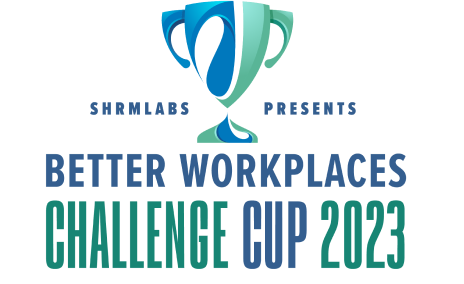Preventive coaching provides proactive employee support before workplace challenges become visible problems. Rather than waiting for stress, burnout, or performance issues to surface, this approach builds resilience and skills early. For HR leaders, implementing preventive coaching strategies creates healthier work environments while reducing costly interventions later. This comprehensive approach addresses common workplace challenges through early support systems.
What is preventive coaching and how does it work?
Preventive coaching is a proactive approach to workplace wellbeing that supports employees before challenges become serious problems. Unlike reactive support that responds to crises, preventive coaching builds resilience, skills, and coping strategies during stable periods. This methodology focuses on early intervention to maintain employee mental health and performance.
The approach works by identifying potential stress points and providing coaching support during transitions, increased workloads, or challenging projects. Coaches help employees develop healthy coping mechanisms, improve communication skills, and build confidence before pressure situations arise. This creates a foundation of resilience that employees can draw upon when facing difficulties.
Preventive coaching typically involves regular check-ins, skill-building sessions, and personalised support plans. The methodology emphasises building self-awareness, emotional intelligence, and practical problem-solving abilities. By investing in these areas early, organisations create stronger, more adaptable teams that can handle challenges more effectively.
Why do employees need support before problems become visible?
Workplace stress and mental health challenges develop gradually, often remaining hidden until they reach crisis points. By the time problems become visible through absenteeism, decreased performance, or burnout, significant damage has already occurred. Early intervention prevents these issues from escalating and reduces both personal and organisational costs.
Most workplace challenges begin as manageable concerns that compound over time. An employee might initially feel slightly overwhelmed with a new project, but without proper support, this can develop into chronic stress, anxiety, or complete disengagement. The psychological principle of prevention suggests that addressing small issues early requires far less intervention than managing major problems later.
From an organisational perspective, waiting until problems surface means dealing with decreased productivity, increased sick leave, and potential staff turnover. The hidden costs include reduced team morale, increased management time spent on crisis management, and the expense of recruiting and training replacements. Preventive support maintains team stability and performance while avoiding these costly disruptions.
What are the biggest workplace challenges that preventive coaching addresses?
Preventive coaching effectively addresses stress management, work-life balance issues, communication challenges, leadership development needs, and career transitions. These common workplace concerns benefit significantly from proactive intervention rather than reactive crisis management. Stress management remains the most frequent area where preventive coaching provides valuable support.
Work-life balance challenges often develop when employees struggle to set boundaries or manage competing priorities. Preventive coaching helps establish healthy routines and boundary-setting skills before burnout occurs. Communication challenges, including conflict avoidance or difficulty with feedback, can be addressed through skill-building sessions that improve workplace relationships.
Leadership development represents another key area where preventive coaching proves valuable. Supporting employees before they take on leadership roles builds confidence and competence, reducing the stress of new responsibilities. Career transitions, whether promotions, role changes, or new team dynamics, benefit from coaching support that helps employees navigate change successfully.
Additional areas include confidence building, goal setting, and team collaboration skills. By addressing these areas proactively, organisations create more resilient, capable teams that can handle challenges independently.
How does preventive coaching impact employee retention and engagement?
Preventive coaching significantly improves employee retention by creating supportive work environments where people feel valued and equipped to handle challenges. When employees receive proactive support, they report higher job satisfaction and stronger connections to their organisations. This proactive support demonstrates genuine care for employee wellbeing beyond just productivity metrics.
Engagement levels increase because preventive coaching helps employees develop skills that make their work more manageable and rewarding. When people feel confident in their abilities and supported during challenges, they invest more energy in their roles. The coaching relationship itself creates a sense of personal development and career investment that strengthens employee commitment.
The cultural impact of preventive coaching extends throughout organisations. Teams that receive proactive support develop stronger collaboration, better communication, and more positive workplace relationships. This creates an environment where employees want to stay and contribute, reducing turnover costs and maintaining team stability.
Retention improves because employees feel prepared for challenges rather than overwhelmed by them. When people have the tools and support to handle workplace stress effectively, they’re less likely to seek opportunities elsewhere. This creates a positive cycle where strong retention rates contribute to better team dynamics and organisational stability.
What’s the difference between preventive coaching and traditional employee assistance programs?
Traditional Employee Assistance Programs (EAPs) respond to crises after problems have developed, while preventive coaching builds resilience and skills before challenges arise. EAPs typically provide short-term support for employees experiencing significant difficulties, whereas preventive coaching focuses on ongoing development and early intervention strategies.
EAPs excel at crisis intervention, offering immediate support for serious personal or workplace issues. They provide valuable services including counselling, legal advice, and emergency assistance. However, their reactive nature means employees often wait until problems become severe before seeking help, limiting the effectiveness of interventions.
Preventive coaching takes a developmental approach, working with employees during stable periods to build capabilities and resilience. This approach normalises seeking support and removes the stigma often associated with EAP usage. Employees can access coaching for growth and skill development rather than only during crises.
The two approaches complement each other effectively. Preventive coaching reduces the need for crisis interventions by addressing challenges early, while EAPs provide essential support when serious issues do arise. Organisations benefit most from offering both options, creating comprehensive support systems that address employee needs at different stages.
How do you measure the success of preventive coaching programs?
Success measurement for preventive coaching focuses on employee wellbeing metrics, engagement surveys, retention data, and productivity indicators that demonstrate program value. Unlike reactive interventions, preventive coaching success appears in maintained stability rather than dramatic improvements. Wellbeing metrics provide the most direct measurement of program effectiveness.
Employee engagement surveys reveal changes in job satisfaction, stress levels, and confidence ratings. Regular pulse surveys can track improvements in work-life balance, team relationships, and overall workplace satisfaction. These metrics should be measured before program implementation and at regular intervals to show trends and improvements.
Retention data provides concrete evidence of program value through reduced turnover rates, particularly among high-performing employees. Tracking voluntary departures and exit interview feedback helps identify whether coaching support influences retention decisions. Reduced absenteeism and sick leave usage also indicate improved employee wellbeing.
Productivity indicators include goal achievement rates, project completion times, and team collaboration effectiveness. While these metrics can be influenced by many factors, consistent improvements alongside wellbeing measures suggest coaching program success. The key is establishing baseline measurements and tracking multiple indicators over time to demonstrate comprehensive program impact.
For HR leaders seeking to demonstrate ROI, combining these measurements with cost analysis of reduced recruitment, training, and crisis intervention expenses provides compelling evidence of preventive coaching value. Through our Inuka Method, we help organisations track these metrics using comprehensive dashboards that show real-time coaching impact while maintaining complete employee privacy. Our impact check system allows organisations to measure the effectiveness of their preventive coaching programs systematically. If you’re interested in implementing preventive coaching strategies in your organisation, please contact us to discuss how we can support your team’s wellbeing and performance goals.







